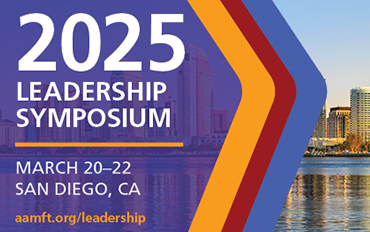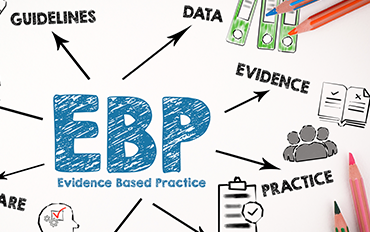While often perceived as a modern and avant-garde practice, non-monogamy is far from new. Across cultures and throughout history—including religious texts, indigenous traditions, and communal arrangements—forms of non-monogamous relationships have long existed (Conley et al., 2013; Sheff, 2016). Historical records reference polygamous and polyamorous structures in early religious institutions, such as those found in biblical texts and within various cultural frameworks that did not adhere to Western monogamous norms (Anapol, 2010).
However, as society reimagines intimacy in the 21st century, we invite you in an exploration that centers underlying systemic values and relational practices of ethical non-monogamy (ENM)—not simply as an alternative to monogamy, but as a lens through which we discuss how power, consent, and justice operate when forming bonds. This exploration calls on all of us, particularly within the therapeutic community, to reimagine what ethical relating looks like across diverse identities and structures. In other words, how might we—marriage and family therapists (MFTs)—help center justice as a guiding principle in ways to support people in building and sustaining connections?
Boundaries or barriers? Neoliberal values in disguise
In contemporary Western society, sex and sexuality have increasingly become sites of commodification. Dating apps promise instant intimacy, “situationships” blur the lines of commitment, and love itself is often marketed as a consumable (Illouz, 2019). In this context, freedom is often framed as the ultimate good. Yet when freedom is prioritized, justice is often left behind. Judith Butler (2004) argues that ethics cannot be reduced to individual choice alone, but must be understood through the lens of our deep interdependence. Butler writes, “To be a body is to be given over to others even as we have a certain responsibility for those others”, highlighting that our lives are fundamentally relational. In the context of non-monogamy, this means that ethical relating is not simply about autonomy or negotiated agreements; it is also about understanding the effects of our actions through the emotional systems we share with others.
This is where the language of “ethics” can be foundationally flawed. Indeed, the word “ethical” itself is not neutral. In sociology and feminist theory, ethics are understood to be constructed through cultural norms, power dynamics, and dominant ideologies that are not outside of them (Ahmed, 2012). In this way, ENM may inadvertently inherit the very systems of hierarchy and individualism it seeks to subvert.
Many proponents of ENM emphasize boundaries as crucial for relational health. In the MFT field, Bowen (1978) was one of the earliest theorists to articulate the importance of healthy boundaries in maintaining differentiation of self within relational systems. While we believe boundaries can support consent and communication, they can also, in some cases, reflect neoliberal ideologies that prioritize individual autonomy over collective responsibility. For example, boundaries may be used to safeguard one’s comfort without a reciprocal commitment to mutual accountability. In these instances, could boundaries begin to function more as barriers than as bridges when forming bonds?
We recognize some MFT theories invite people to protect their separateness—prioritizing clear boundaries, self-regulation, and the need to cope with difficult emotions as a way of managing relationships in their uncertainty. However, in prescribing this approach, MFT practitioners might miss the opportunity to soften the edges of our separateness, which are essential in developing relational stories that live not only between us but also within us. As systemic thinkers, we recognize the obscurity between what is considered consensual and what is truly ethical as we acknowledge the broader implications of life in socio-cultural-political contexts.
Love as justice: Reclaiming the radical potential of relationships
Not everyone enters relationships expecting every encounter to carry political weight. Yet in today’s relationship landscape, consent has become the gold standard for legitimacy in intimate and relational exchanges. While its emphasis on agreement is important, consent could also be understood as a transactional checkbox, particularly when its deeper ethical and relational dimensions are overlooked. Originally rooted in medical and legal frameworks as a means of protecting bodily autonomy and preventing harm, the concept of consent was designed to formalize such agreements (Cahill, 2011). However, when transferred to intimate relationships, its application becomes far more complex with unavoidable asymmetries that exist between partners that can significantly expand or constrain how choices are made, expressed, and lived.
Consent may never be fully transparent or evenly distributed, and for sociologists like Illouz, it may be insufficient as the sole measure of ethical engagement.
Eva Illouz (2012) critiques this tendency, noting that consent must be relational, not contractual. “When the structure of opportunities is rooted in asymmetry,” she argues, “consent may be present, but mutuality is not.” In other words, while someone may agree to a relational arrangement, that agreement may emerge from limited choices, emotional dependence, or unacknowledged power dynamics. For Illouz, consent in intimate life is always, to some extent, obscure. Consent may never be fully transparent or evenly distributed, and for sociologists like Illouz, it may be insufficient as the sole measure of ethical engagement.
When we listen to the accounts of those we help as MFTs in their journey to forming emotional bonds, it becomes clear that the depth and quality of those connections rely on more than attraction or compatibility—they are shaped by the values people bring into their relational lives. This is where love must be understood not merely as an emotion, but as a deliberate practice grounded in care, responsibility, and justice. As bell hooks (2000) beautifully states, “Love is an action, never simply a feeling,” reminding us that relationships can be cultivated through the consistent and intentional efforts to honor the humanity in each other. She insists that mutual care must be at the center of affirmation of each other’s lived experiences.
Feminist theorist Seyla Benhabib offers a similar perspective when it comes to the ethics of forming bonds. In her work on the “generalized other” and the “concrete other,” Benhabib (1992) argues that ethical relationships require more than abstract respect for autonomy; they demand recognition of their particularities and histories. She writes, “to respect the concrete other is to recognize the moral worth of the other as a unique and irreplaceable individual.” In the context of ENM and relational therapy, we notice the importance of moving beyond universalized ethical codes or contractual consent. Instead, in hopes of supporting people in their aspirations of living a life with more say, agency, and relational fulfillment, we must cultivate practices that center a justice-oriented ethics, one that values presence over performance, prioritizes responsiveness over rigid agreements, and beliefs in the potential of fairness in relationships.
Ethical discomfort: The therapist’s dilemma
Therapists who are working with ENM clients will often encounter several moments of tension. Many of them want to affirm their clients’ identities and avoid pathologizing non-monogamy. However, without careful attention to the ethical structures within the relationship, therapists may unintentionally reinforce harm. Barker and Langdridge (2010) emphasize the need for ongoing critical reflexivity when working with non-monogamous clients. This involves offering an opportunity to understand not only the clients’ relational structures, but also therapists’ own assumptions, training, and values. Who is being centered in this relationship? Who is making decisions, and who is affected by them? What emotional labor is being distributed, equally or unequally? Are all voices being heard in the room?
 In theory, polyamorous relationships are built on equity. In practice, hierarchy is hard to shake. In a study, Rubel and Bogaert (2015) found that individuals who have identified themselves as having a “secondary” role in polyamorous relationships often experience lower relational satisfaction and less emotional security than those in “primary” roles. This is just an example of hierarchy, and inherited structures can still replicate the very exclusion and marginalization that monogamy has been critiqued for. Meanwhile, the emotional labor of “managing” a polycule often falls unequally across gender lines, which can still reinforce traditional gendered patterns of care and sacrifice (Hochschild, 1983; Tronto, 1993).
In theory, polyamorous relationships are built on equity. In practice, hierarchy is hard to shake. In a study, Rubel and Bogaert (2015) found that individuals who have identified themselves as having a “secondary” role in polyamorous relationships often experience lower relational satisfaction and less emotional security than those in “primary” roles. This is just an example of hierarchy, and inherited structures can still replicate the very exclusion and marginalization that monogamy has been critiqued for. Meanwhile, the emotional labor of “managing” a polycule often falls unequally across gender lines, which can still reinforce traditional gendered patterns of care and sacrifice (Hochschild, 1983; Tronto, 1993).
This ongoing interrogation is precisely where ethical practice becomes essential for all of us who are engaging social systems. As Judith Butler (2004) reminds us, ethics is not a static stance but a relational process, one that requires sustained attention to the unpredictability of others and the uneven terrain of intimacy. In the context of ENM, where relationships are multi-layered, relinquishing the illusion of “having a formula” in relationships, particularly in the context of ENM, is not just a logistical shift, it can be a political and ethical one. The desire for a clear-cut recipe for how to “do” non-monogamy often reflects deeper cultural entanglements with neoliberal ideals. These values may encourage people to focus on the belief that with the right calendar, the right boundary list, or the right communication script, for example, relational life can be managed like a project. However, we believe relationships are not to be understood as productivity systems. Relationships are living, breathing, evolving encounters shaped by heart, uncertainty, and difference.
It is within this uncertainty that our ethical imagination must expand. As therapists, partners, and community members, we find it helpful to imagine new possibilities when forming intimate and social bonds. Ahmed (2010) reminds us that in neoliberal cultures, emotions and relationships can become commodified and turned into affective economies where people are valued for how well they can manage, produce, or soothe the emotional needs of others. To locate the ethics of ethical non-monogamy and resist commodification, we must ask questions that feminist theorists have been asking all along: What does it mean to love outside the logic of possession, productivity, and performance?

Danna Abraham, PhD, LMFT, is an AAMFT Professional member holding the Approved Supervisor and Clinical Fellow designations and Assistant Professor at the California School of Professional Psychology at Alliant International University. In her work, she focuses on helping therapists in training develop into their preferred professional identities. She is the director of the Research Initiative for Storytelling Engagement (RISE) lab where she is interested in exploring the effects of gender and social inequalities in higher education. dayanne.abraham@alliant.edu theriselab.com

Afarin Rajaei, PhD, LMFT, is an AAMFT Professional Member holding the Approved Supervisor and Clinical Fellow designations, an educator, researcher, and author with a deep commitment to systemic, justice-oriented care. She holds a PhD in Medical Family Therapy and brings over 10 years of clinical experience working with individuals, couples, and families across diverse cultural and relational contexts. She currently serves as associate editor of the International Journal of Systemic Therapy. Her work bridges family therapy, education, and advocacy, with a focus on topics such as relational ethics, medical family therapy, social justice in clinical practice, and the impact of culture and identity on healing. She is the co-founder of the Relationship Institute, where she leads initiatives that center inclusive care, community connection, and therapist development. afarin.rajaei@alliant.edu

Monica Whitlock, PhD, LMFT, is an assistant professor of couple and family therapy at Alliant International University in San Diego, CA. She holds a PhD in Sociology and Marriage and Family Therapy from the University of Southern California and is a licensed marriage and family therapist in California and Washington. She is an AAMFT Approved Supervisor candidate whose scholarship and clinical practice focus on emerging adult development, complex trauma, and emotionally focused couple and family therapy. She has directed nationally recognized trauma-informed care initiatives in educational and behavioral health systems, with funding from SAMHSA, the U.S. Department of Education, and the National Institute of Justice. monica.whitlock@alliant.edu

Heather Warren, BA, is a PhD student at Alliant International University in San Diego, Associate Marriage and Family Therapist, and AAMFT Supervisor Candidate. Her research focuses on the lived experiences of gender non-binary individuals within male-dominated, binary cultural frameworks. Clinically, she has worked with children and adolescents through a county-funded nonprofit program. Her work is guided by a commitment to challenging dominant discourses, deepening relational ethics, and amplifying marginalized voices. hwarren@alliant.edu
Ahmed, S. (2012). On being included: Racism and diversity in institutional life. Duke University Press.
Anapol, D. (2010). Polyamory in the 21st century: Love and intimacy with multiple partners. Rowman & Littlefield.
Barker, M., & Langdridge, D. (2010). Whatever happened to non-monogamies? Critical Psychology, 33, 75-79.
Benhabib, S. (1992). Situating the self: Gender, community, and postmodernism in contemporary ethics. Routledge.
Bowen, M. (1978). Family therapy in clinical practice. Jason Aronson.
Butler, J. (2004). Undoing gender. Routledge.
Cahill, A. J. (2011). Overcoming objectification: A carnally grounded ethics. Routledge.
Conley, T. D., Moors, A. C., Matsick, J. L., & Ziegler, A. (2013). The fewer the merrier?: Assessing stigma surrounding consensually non-monogamous romantic relationships. Analyses of Social Issues and Public Policy, 13(1), 1-30. https://doi.org/10.1111/asap.12001
Hooks, b. (2000). All about love: New visions. Harper Perennial.
Hochschild, A. R. (1983). The managed heart: Commercialization of human feeling. University of California Press.
Illouz, E. (2012). Why love hurts: A sociological explanation. Polity Press.
Illouz, E. (2019). The end of love: A sociology of negative relations. Oxford University Press.
Rubel, A. N., & Bogaert, A. F. (2015). Consensual nonmonogamy: Psychological well-being and relationship quality correlates. Journal of Sex Research, 52(9), 961-982.
Sheff, E. (2016). The polyamorists next door: Inside multiple-partner relationships and families. Rowman & Littlefield.
Tronto, J. C. (1993). Moral boundaries: A political argument for an ethic of care. Routledge.
Other articles
Recap of Leadership Symposium in San Diego, CA
The leadership development program is specifically designed to cultivate leadership excellence and structured to facilitate dynamic interactions with fellow trailblazers and thought leaders, enabling attendees to confront and surmount the unique challenges and prospects that emerge in the professional journey.
Outcomes Framework for Supervision: The Acid-Test
After a century of psychotherapy supervision and over half a century of supervision research, what do we know empirically about the contribution of psychotherapy supervision to patient outcomes (Watkins, 2011; Watkins, 2020; Callahan & Watkins, 2018)? According to reviews conducted by Watkins (2011; 2020), we still don’t know much. This was the conclusion of Watkins after his initial review of 30 years of psychotherapy research (2011).
H. Charles Fishman, MD, Misti Sparks, PhD, & Violeta Kadieva, PhD
Shaping Tomorrow: Your Role in AAMFT’s Strategic Journey
At the recent AAMFT Leadership symposium, one of the speakers implored the audience, “This is not a time to stand on the sidelines; get involved!” I want to add to this important admonition and say that we need to get involved and we need to spend our time prioritizing those things that are most important.
Adrian Blow, PhD



